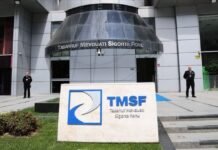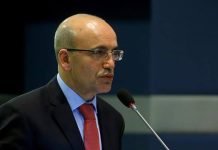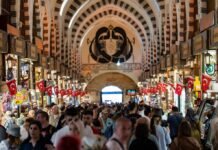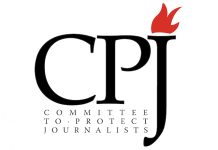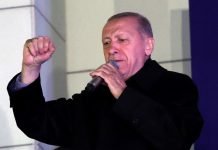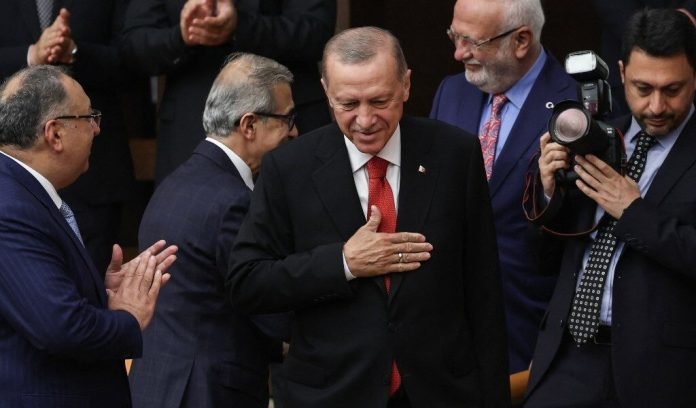
Turkey’s Recep Tayyip Erdoğan was sworn in for a third term as president on Saturday, promising to serve “impartially” after winning a historic runoff election to extend his two-decade rule, Agence France-Presse reported.
The inauguration in parliament will be followed by a lavish ceremony at his palace in Ankara attended by dozens of world leaders.
Turkey’s divisive leader won the May 28 runoff against a powerful opposition coalition, despite an economic crisis and anger over February earthquakes that killed more than 50,000 people.
Erdoğan won 52.18 percent of the vote, while his secular rival Kemal Kılıçdaroğlu garnered 47.82 percent, official results show.
“As president, I swear on my honor and integrity, before the great Turkish nation … to work with all my power to protect the existence and independence of the state … and to fulfill my duty impartially,” Erdoğan said in parliament after a ceremony outside the building where he saluted soldiers in pouring rain.
Supporters in parliament gave Erdoğan a minute-long standing ovation after his swearing-in, while some opposition lawmakers refused to stand.
In his oath Erdoğan also promised not to deviate from the rule of law and the secular principles of the republic founded by Mustafa Kemal Ataturk 100 years ago.
Turkey’s longest-serving leader now faces immediate challenges in his third term, including a slowing economy and tensions with the West.
“From a geopolitical point of view, the election will reinforce Turkey’s recent pursuit of an independent foreign policy,” said Matt Gertken, chief geopolitical strategist at BCA Research.
“This policy aims to extract maximum economic and strategic benefits from eastern and autocratic states while still preventing a permanent rupture in relations with Western democracies,” he said.
“Tensions with the West will likely increase again,” Gertken added.
Azerbaijan’s President İlham Aliyev, Iran’s vice president Mohammad Mokhber, Hungary’s right-wing Prime Minister Viktor Orban and the speaker of the lower house of Russia’s parliament, Vyacheslav Volodin, were among the foreign guests expected at the ceremony.
Armenian Prime Minister Nikol Pashinyan will also be present, his office said, the latest sign of a thaw between the two arch-foes.
Biting economy
Addressing the country’s economic troubles will be Erdogan’s first priority, with inflation running at 43.70 percent, partly due to his unorthodox policy of cutting interest rates to stimulate growth.
The president is due to unveil his new cabinet on Saturday, with media speculating that former finance minister Mehmet Şimşek, a reassuring figure with international stature, could return.
A former Merrill Lynch economist, Şimşek is known to oppose Erdoğan’s unconventional policies.
He served as finance minister between 2009 and 2015 and deputy prime minister in charge of the economy until 2018, before stepping down ahead of a series of lira crashes that year.
“Erdoğan’s government looks like it will pursue an orthodox stabilization program,” said Alp Erinç Yeldan, professor of economics at Istanbul’s Kadir Has University.
“What we see now is that the news about Mehmet Şimşek and his team is greeted with enthusiasm by the markets,” he told AFP.
Turkey’s new members of parliament were sworn in on Friday in its first session after the May 14 election, with Erdoğan’s alliance holding a majority in the 600-seat house.
Kılıçdaroğlu’s future as leader of the CHP remains in doubt following his defeat to Erdogan.
NATO chief visits
NATO allies are anxiously waiting for Ankara to green-light Sweden’s drive to join the defense alliance before a summit in July.
Erdoğan has delayed approving the application, accusing Stockholm of sheltering “terrorists” from the outlawed Kurdistan Workers’ Party (PKK), which is listed as a terrorist group by Turkey and much of the international community.
NATO chief Jens Stoltenberg will attend Erdoğan’s inauguration and hold talks with him, the alliance said Friday.
Sweden’s foreign minister, Tobias Billstrom, said on Twitter that “a clear message” had emerged at a NATO meeting in Oslo for Turkey and Hungary to start the ratification process.
His Turkish counterpart, Mevlüt Çavuşoğlu, responded on Twitter: “A crystal clear message to our Swedish Friends! Fulfill your commitments arising from Trilateral Memorandum & take concrete steps in the fight against terrorism. The rest will follow.”

